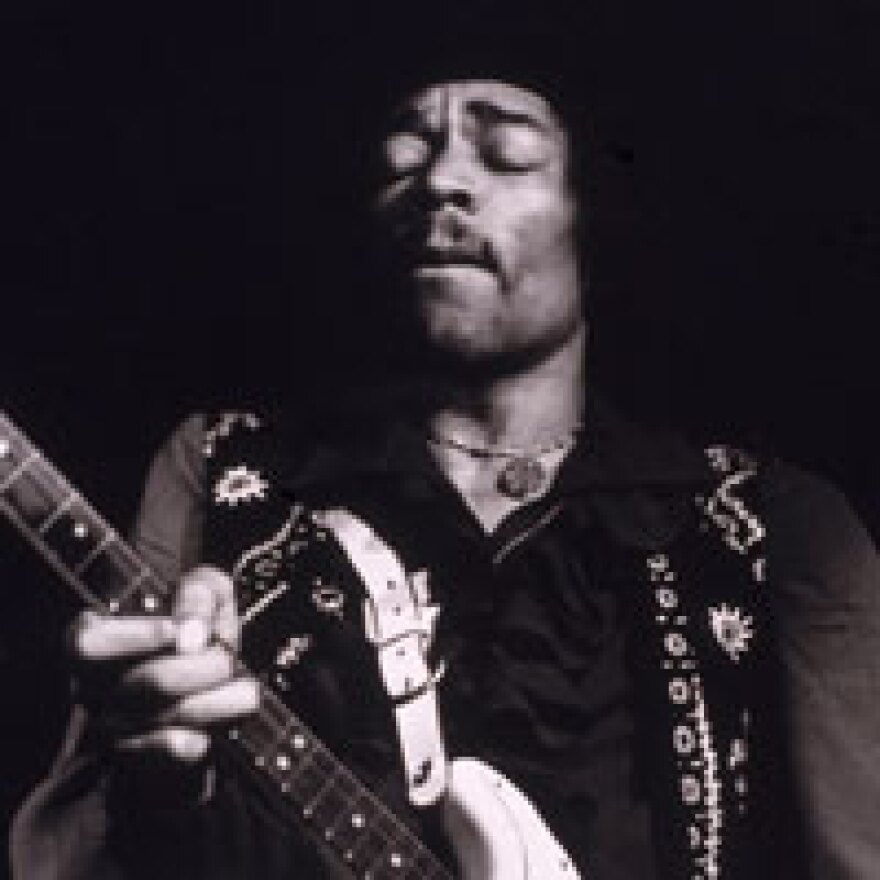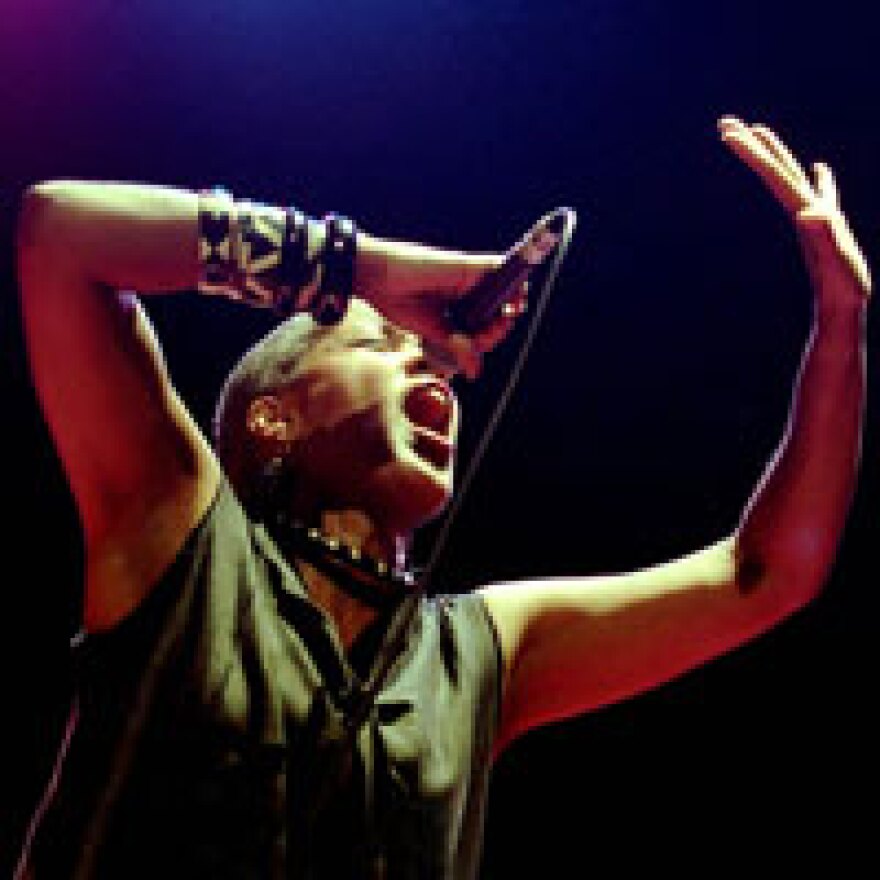The symbols of patriotism are everywhere in the nation's capital, marking this week's historic transition of power. Flags fly high and historic monuments gleam white in the chilly air; soon, music will flow from loudspeakers and from real musicians. It's almost certain that, at some point, the shivering masses in attendance will be treated to a rousing rendition of "The Star Spangled Banner." It signals the start of most sporting events, so why not a new presidential administration?
The story of Francis Scott Key's "Star Spangled Banner" is the stuff of grade-school history books. But the song has inspired some memorable interpretations in the recent past, as each performer imbues it with a personal take on patriotism. Here are five (among many others) that stand out.
Copyright 2024 NPR. To see more, visit https://www.npr.org.
Jimi Hendrix

It's obvious what all the fuss was about over Jimi Hendrix's performance during the closing hours of Woodstock in August 1969. Some saw it as an update on patriotism -- stars and stripes turned psychedelic -- while others couldn't even recognize the melody. Hendrix famously told talk-show host Dick Cavett that he didn't mean any harm by it; that, in fact, he thought it was "pretty." Many still hear in it the tragic power of bombs bursting and rockets glaring. A whole new generation experiencing another controversial war can hear the bittersweet emotion of men and women dying for their country through the tenderness of his interpretation of the melody. Musically, it was a shot heard 'round the world, as it changed "The Star-Spangled Banner" from a marching-band piece into a vehicle for solo electric guitar.
Jose Feliciano

Jose Feliciano became a pop-music crossover hitmaker after 1968's Feliciano, seeded with his spellbinding reworking of The Doors' "Light My Fire," hit the Top 5. That same year, his performance of "The Star-Spangled Banner" at the start of the fifth game of the World Series in Detroit set off a controversy. He didn't change the words, he didn't alter the melody, and he didn't sing it in Spanish. But, during a time when our country was intensely divided over the Vietnam War, the "us vs. them" mentality spread to a blind Puerto Rican pop star offering a guitar-and-voice interpretation of the National Anthem. Radio stations stopped playing his records after that, and he's said that he continues to receive negative feedback. Today, it's hard to hear what the fuss was about: The performance was a perfect mix of folk, soul and love of country.
Marvin Gaye

Marvin Gaye's take on "The Star Spangled Banner" during the 1983 NBA All-Star game was a perfect example of his complicated genius. The duality of an artist capable of writing anthems to urban angst ("What's Going On") and to the pleasures of the flesh ("Let's Get It On") is magnificently reflected in a performance that made patriotism almost sensual. Consider the particulars of the performance: The NBA was experiencing probably its greatest popularity, and Marvin Gaye had just scored yet another career revival with his uber-hit "Sexual Healing." With a slow-burning rhythm track, Gaye used every nuance of his vocal talent to bring the crowd to a rapturous celebration of our collective history. Still, there were many who found it offensive at best, a disgrace at worst. But listen to the crowd at the end. Are they cheering Gaye, or the sentiment of living in the home of the brave?
Rene Marie

Last year, jazz vocalist Rene Marie was invited to perform "The Star-Spangled Banner" before the city of Denver's State of the City mayoral address. Which is sort of what happened. Marie did indeed sing the melody we all recognize, but she inserted the words to "Lift Every Voice and Sing" into it. "Lift Every Voice," also known as "The Negro National Anthem," was written as a poem by James Weldon Johnson and then set to music by his brother, John Rosamond, in the early 1900s. It was adopted by the NAACP in 1919 and eventually became widely popular during the American civil-rights movement. Marie's substitution set off a firestorm of controversy; the governor of Colorado called it "disrespectful." Marie, who grew up in a segregated town, says that the arrangement is part of a larger suite incorporating various patriotic songs -- all meant as her expression of love and hope for the country.
Whitney Houston

The 1991 Super Bowl included what should have been a routine pre-game performance by yet another talented vocalist taking on the challenge of a notoriously difficult tune. But something happened. Maybe it was the pre-song dedication to the soldiers fighting in the Gulf War, maybe it was the brilliant arrangement of the orchestra and singer, maybe it was Whitney Houston's vocal prowess, and maybe it was the roar of the crowd as Houston worked her way through the emotions of all of the above. Whatever it was, the end result was a performance so inspirational that it was released commercially (for charity) and climbed to No. 20 on the Billboard pop charts. It was reissued 10 years later after Sept. 11, 2001, and climbed all the way to No. 6.


